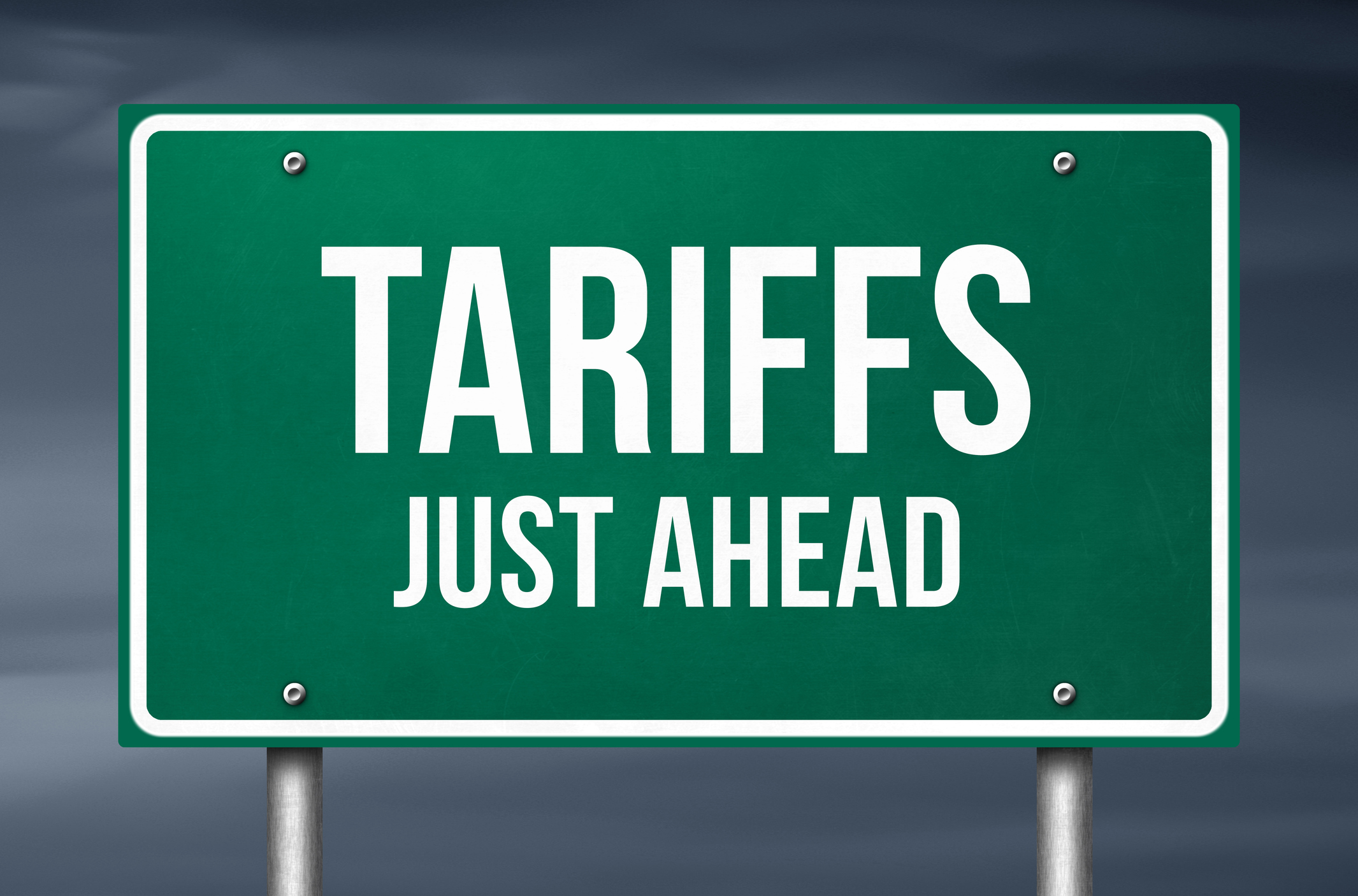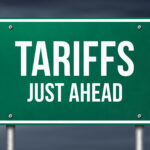Tariffs Bring April Showers

As you have probably seen in the news, President Trump has announced new tariffs on nearly all major trading partners. These tariffs are “reciprocal,” on top of previously announced duties, and could have possible effects on the economy and investment markets.
In light of this, I wanted to share a factual and politically neutral perspective from the lens of your financial advisor, looking at what it could mean for your financial success and our key takeaways.
Navigating Market Volatility: Staying Focused on Long-Term Success
Above all else, we remember that we should be invested according to our time horizon therefore short term market moves should not impact our investment strategy. Tariff/trade changes are an ongoing process, and it will take time to see their full effects.
Remember that investors have faced many challenges over history, including the pandemic, inflation fears, wars, recessions, bubbles, political turmoil, and technological revolutions. In every case, markets went on to new highs, even if it took some time. While the past is no guarantee of the future, it’s important to not lose sight of this fact.
Let’s Establish Some Key Facts
To help cut through the noise, below we summarize some of the biggest developments and issues from the tariff announcement:
• The immediate market reaction is negative, with the major equity indexes being under pressure this week. However, fixed income and cash are holding steady.
• The newly announced tariff measures have been set at a minimum 10% rate, and the average tariff rate across countries is 25%, with rates for some countries as high as 49%. The level and scope are greater than many investors and economists expected. Remember, the market doesn’t like surprises in the short term.
• This all comes at a time where consumer and investor sentiment is low. Concerns currently include higher inflation and a possible recession, although uncertainty remains around policy implementation timelines and economic effects of the tariffs.
• At a company level, some U.S. manufacturers might benefit from less foreign competition. Conversely, about 30% of large U.S. companies’ sales come from overseas, so changes in trade rules could impact their business. Many companies are already adjusting their operations in response.
• Given limited visibility into trade policy outcomes, the Federal Reserve has maintained interest rates, viewing tariff effects as “transitory” one-time events. If needed, the Fed has shown in the past it could step in to support markets.
Key Takeaways and the Path Forward
These tariff announcements represent a major shift in trade policy. That said, successful investing isn’t about reacting to headlines or trying to time market movements. Rather, it’s about maintaining perspective and a well-diversified portfolio aligned with your financial goals.
There are many reasons to believe markets and the economy can eventually move past the current set of concerns. It’s important to recognize that this pattern falls within normal market behavior. Historically, about two-thirds of years deliver positive returns while one-third are negative. Markets have been due for a correction for quite some time. Despite these occasional downturns, the stock market has demonstrated growth across decades and market cycles.
Furthermore, maintaining perspective and portfolio diversification remains crucial for investors. Having the fortitude and discipline to stay invested and stick to your investment strategy is a key principle to long-term financial success. We are here to help you determine appropriate strategies for your investment portfolios.
Perhaps Warren Buffett said it best in 2008, during the middle of the global financial crisis: “In the 20th century, the United States endured two world wars and other traumatic and expensive military conflicts; the Depression; a dozen or so recessions and financial panics; oil shocks; a flu epidemic; and the resignation of a disgraced president. Yet the Dow rose from 66 to 11,497.”
As always, we’re here to help you maintain perspective and make informed decisions about your financial future. Please reach out to us if you have any questions or just want to touch base. We understand this can be an unsettling time for investors and we are here to support you. Be well.
 ASHLEY ROSSER, PRESIDENT
ASHLEY ROSSER, PRESIDENT
Prior to her career in the financial services industry, Ashley earned her Bachelor of Science in Nursing from Cedarville University.
Ashley decided to make a career change from her ten years within the healthcare industry as a pediatric emergency room nurse to retirement and 401K investment planning. She joined Victory Fiduciary Consulting in 2008 after obtaining her Series 65 professional financial license and went on to earn her AIF (Accredited Investment Fiduciary) professional designation from the Center for Fiduciary Studies.
This material is for general information only and is not intended to provide specific advice or recommendations for any individual. There is no assurance that the views or strategies discussed are suitable for all investors or will yield positive outcomes. Investing involves risks including possible loss of principal. Any economic forecasts set forth may not develop as predicted and are subject to change.
References to markets, asset classes, and sectors are generally regarding the corresponding market index. Indexes are unmanaged statistical composites and cannot be invested into directly. Index performance is not indicative of the performance of any investment and do not reflect fees, expenses, or sales charges. All performance referenced is historical and is no guarantee of future results.












